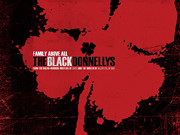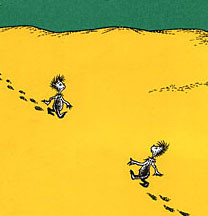When I began writing that company-driven digital media was an emerging trend to watch with tangible income marketing potential, some people weren’t too keen on the idea.
Two days ago, Brian Steinberg with Advertising Age reported that Procter & Gamble (P&G) is in the early stages of producing a pilot focused on sketch comedy and the travails of the comics who devise it, which it hopes can become a primetime reality series for broadcast or cable. While this doesn’t connect all the dots between Internet-based digital media programming and traditional broadcast television, it does raise interesting questions around the concept well beyond the Cavemen.
"If it's not entertaining, then it's not going to engage, and if it doesn't, then it's a failure," said Peter Tortorici, president of WPP Group's Group M Entertainment. "Consumers aren't looking to be entertained by brands. They are looking to be entertained by characters and stories."
Tortorici is right. Under the existing model, advertisers rely on networks to develop and nurture entertaining shows to capture an audience. Then, assuming the measures are right, they buy time around those shows. However, most people agree that the old model is broken.
"The market is so fragmented, and because you have DVRs out there, we know that people are fast-forwarding through the commercials,” contributed Pat Gentile, head of P&G Productions, to the article. “If you can create something that is interesting and that resonates with the consumer, for Procter & Gamble, that's a pretty big deal."
It is a very big deal. P&G is among the biggest spenders on network television despite steadily shifting away from television advertising since 2005. Considering P&G currently commands an advertising budget of $6.7 billion, producing its own pilot it seems like a modest investment.
Some might say it’s almost a necessity. Even Fortune’s Geoff Colvin framed up his question to P&G’s James Stengel this way: Fortune’s Geoff Colvin: “Now that mass media is losing its dominance, what's the new model?”
“It's about understanding these consumers in a complete way. Our research has changed a lot. We do much more immersion research, much more anthropological research. We really try to get at what we can do through our brands to make a difference in people's lives,” Stengel said.
Although P&G is developing a pilot for broadcast or cable this time, we would not be surprised to see even more immersive experimentation in digital media, which provides better tracking through analytics and an ability to nurture niche markets. (We can think of hundreds of programs that P&G could develop to engage audiences on the Internet.) As Steinberg pointed out in his well-written article, P&G already has precedents.
Hmmm … suddenly, company-produced programs doesn’t seem so silly anymore. And while I am not suggesting that company-produced programming will or should completely replace broadcast penetration, it does make a lot of sense to consider programming as a viable part of the marketing mix.

Two days ago, Brian Steinberg with Advertising Age reported that Procter & Gamble (P&G) is in the early stages of producing a pilot focused on sketch comedy and the travails of the comics who devise it, which it hopes can become a primetime reality series for broadcast or cable. While this doesn’t connect all the dots between Internet-based digital media programming and traditional broadcast television, it does raise interesting questions around the concept well beyond the Cavemen.
"If it's not entertaining, then it's not going to engage, and if it doesn't, then it's a failure," said Peter Tortorici, president of WPP Group's Group M Entertainment. "Consumers aren't looking to be entertained by brands. They are looking to be entertained by characters and stories."
Tortorici is right. Under the existing model, advertisers rely on networks to develop and nurture entertaining shows to capture an audience. Then, assuming the measures are right, they buy time around those shows. However, most people agree that the old model is broken.
"The market is so fragmented, and because you have DVRs out there, we know that people are fast-forwarding through the commercials,” contributed Pat Gentile, head of P&G Productions, to the article. “If you can create something that is interesting and that resonates with the consumer, for Procter & Gamble, that's a pretty big deal."
It is a very big deal. P&G is among the biggest spenders on network television despite steadily shifting away from television advertising since 2005. Considering P&G currently commands an advertising budget of $6.7 billion, producing its own pilot it seems like a modest investment.
Some might say it’s almost a necessity. Even Fortune’s Geoff Colvin framed up his question to P&G’s James Stengel this way: Fortune’s Geoff Colvin: “Now that mass media is losing its dominance, what's the new model?”
“It's about understanding these consumers in a complete way. Our research has changed a lot. We do much more immersion research, much more anthropological research. We really try to get at what we can do through our brands to make a difference in people's lives,” Stengel said.
Although P&G is developing a pilot for broadcast or cable this time, we would not be surprised to see even more immersive experimentation in digital media, which provides better tracking through analytics and an ability to nurture niche markets. (We can think of hundreds of programs that P&G could develop to engage audiences on the Internet.) As Steinberg pointed out in his well-written article, P&G already has precedents.
Hmmm … suddenly, company-produced programs doesn’t seem so silly anymore. And while I am not suggesting that company-produced programming will or should completely replace broadcast penetration, it does make a lot of sense to consider programming as a viable part of the marketing mix.




























